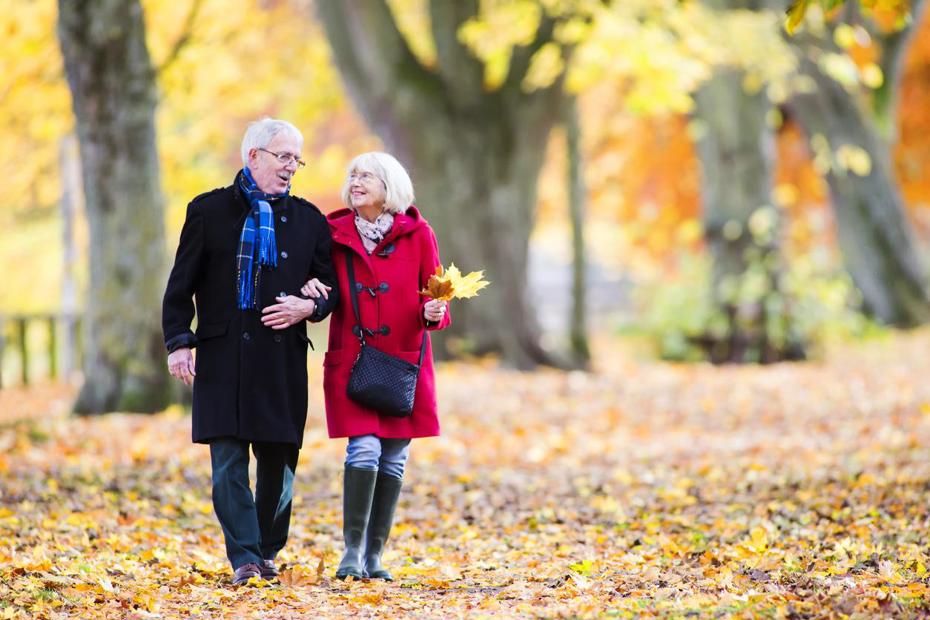Active Living - top tips
Active living includes activities such as walking, swimming, dancing, a team sport or building activity into everyday life - for example taking the stairs instead of the lift. It is good for your body, mind and health.
Why get active?
- When you’re active your body releases natural chemicals (endorphins) which can make you feel good about yourself. It encourages you to take care of your body and maintain a healthy outlook.
- Physical activity can help boost your self-esteem, mood, sleep quality and energy, as well as reducing your risk of stress, depression, and dementia.
- People who do regular activity have a lower risk of many long term diseases, such as heart disease, type 2 diabetes, stroke, and some cancers.
- Activity is good for children’s development and health but it also helps them be better prepared for school, and able to concentrate and learn more when they start school.
- For older people it can help in the management of high blood pressure and angina, maintain regular bowel movements, stimulate a poor appetite, and strengthen muscles and bones, reducing the risk of falls and fractures and easing discomfort if you have arthritis or Parkinson’s.
How active do I need to be?
Adults
An adult should have 75 minutes of vigorous activity (difficulty in breathing and talking) per week or 150 minutes of moderate activity (increased breathing but able to talk) or a combination of both. People over the age of 65 years who are generally fit should include strengthening exercises that work all the major muscles in the body, improving your strength and balance.
Children under 5 years
A child under 5 years should work towards being active for 3 hours every day which means any type of activity that involves them moving around should be encouraged.
Between 5 and 18 years
A child between 5 and 18 years should have at least an hour a day of activity, including moderate and vigorous activity and an activity that builds muscle and bones - such as jumping and running - is advised for three days a week.
There’s no doubt that keeping active makes us feel more energetic. But there are other more specific benefits, including helping to manage high blood pressure and angina, keep you at a healthy weight, maintain regular bowel movements and stimulate a poor appetite.
People with disabilities
Those with a disability should be as active as possible. See below for information about specialist instructors and coaches who will be able to advise on the most suitable activity.
However, something is better than nothing.
- Start small and build up gradually.
- Just 10 minutes at time provides benefits.
- Whatever you choose to do, make sure it is achievable, varied and enjoy it.
- Make sure you drink enough water, and eat before and after exercise (allow your food time to go down though).
Keeping active doesn’t have to be expensive, stressful or take too much time.
- Consider walking to the shops or a friend’s house or try the free NHS Fitness Studio and BBC Make Your Move, guiding you through 10 minutes of activities you can do in the comfort of your own home.
- Think about how you can build physical activity into your everyday routine. Perhaps go for a walk during your lunch break and use a pedometer to keep track of how many steps you take. Try to find different walks, and alternate between them during the week.
Older Adults
Older adults should do some type of physical activity every day. Any type of activity is good for you. The more you do the better.
Adults aged 65 and over should:
- aim to be physically active every day. Any activity is better than none. The more you do the better, even if it's just light activity.
- do activities that improve strength, balance and flexibility on at least 2 days a week.
- do at least 150 minutes of moderate intensity activity a week or 75 minutes of vigorous intensity activity if you are already active, or a combination of both.
- reduce time spent sitting or lying down and break up long periods of not moving with some activity.
If you have fallen or are worried about falling, doing exercises to improve your strength, balance and flexibility will help make you stronger and feel more confident on your feet. Speak to your GP if you have any concerns about exercising or visit our stronger for longer page for further information for highlights how strength and balance exercises can help you to keep doing the things yo enjoy - for longer.
Information and support for active living
Information on the benefits of physical activity
Advice and online support for getting active
Healthy You aims to improve the health of the Cambridgeshire population, specifically by increasing levels of physical activity. This will be done by promoting existing opportunities, developing new opportunities, and supporting individuals that require support to achieve their goals. Subscribe for free support.

Adults
- Free NHS video work outs to help you get active without leaving your home!
- NHS 12-week weight loss plan is an activity plan for beginners, combining running and strength and flexibility workouts, will get you into the habit of regular exercise in 12 weeks
- BBC.co.uk - set yourself a Movement, Flexibility, Balance,or Strength challenge!
- British Heart Foundation – time to get active 10 minute challenge
- Try the Couch to 5k Challenge. This is an audio running plan designed to get complete beginners from couch potato to running 5K (or 30 minutes) in nine weeks. Simply download the podcasts and off you go!

Local sources of information and services
- Healthy You supports adults or children wanting to make a healthy lifestyle change for free.
- Walking: Try joining a health walk to help get fit and meet others at the same time, or find local walking routes and cycling routes, to enjoy the countryside
- Swimming: find your local swimming pool or club
Exercise Referral
Exercise Referral Schemes can help adults become more active to help improve or manage their health.The service is for people with diagnosed medical conditions including high blood pressure, diabetes, obesity, osteoporosis, arthritis, depression and more. The schemes provide a discounted or free tailored gym programme in a supervised environment, and in some areas the additional option of swimming, rehab classes, walking and more. Find your local scheme below and speak to your GP about a possible referral:
Activities for people who have a disability
There are a number of different and exciting activities for people who have a disability. These are all provided by established local sports clubs, led by experienced coaches or instructors. Find out more information and opportunities on Living Sport’s website .
Find out what is available in your local areas in Cambridgeshire using the links at the top of the page.